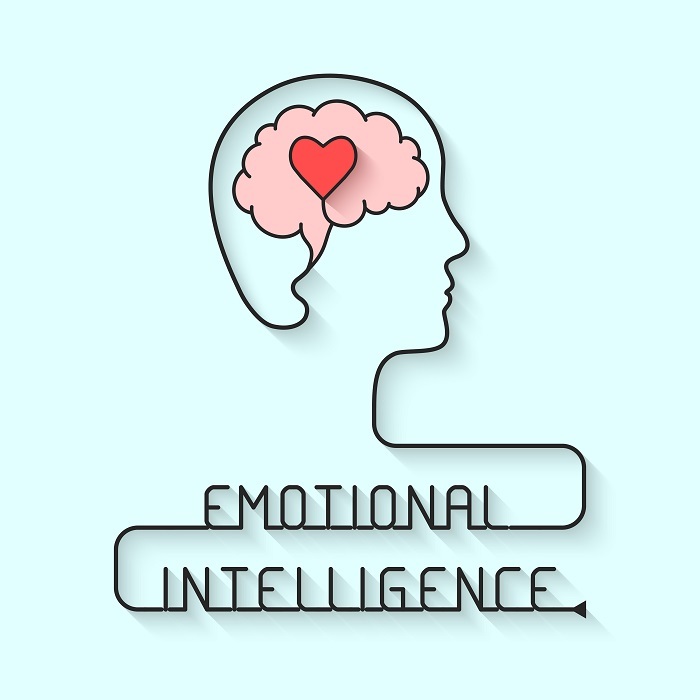
 Data Structure
Data Structure Networking
Networking RDBMS
RDBMS Operating System
Operating System Java
Java MS Excel
MS Excel iOS
iOS HTML
HTML CSS
CSS Android
Android Python
Python C Programming
C Programming C++
C++ C#
C# MongoDB
MongoDB MySQL
MySQL Javascript
Javascript PHP
PHP
- Selected Reading
- UPSC IAS Exams Notes
- Developer's Best Practices
- Questions and Answers
- Effective Resume Writing
- HR Interview Questions
- Computer Glossary
- Who is Who
The Importance of Emotional Intelligence in Leadership
Leadership means not only technical abilities or expertise but also the ability to interact with and motivate people. A leader with strong emotional intelligence understands and responds to the thoughts of the members of the team, which aids in the development of trust and the creation of a healthy working environment.

What is Emotional Intelligence in Leadership?
Emotional Intelligence in leadership refers to a leader's ability to recognize, control, and display their own emotions as well as the emotions of others. This involves being aware of one's own emotions, recognizing and labeling emotions in others, managing one's own emotions, and using emotions to inspire and lead others. Emotionally intelligent leaders can even establish trust, improve communication, and foster strong connections with their team members, resulting in increased performance and teamwork.
Why is Emotional Intelligence Important in Leadership?
Emotional Intelligence (EI) is vital in leadership because it enables leaders to successfully communicate and form connections with their team members, develop a pleasant working atmosphere, and make more informed decisions. Leaders who possess high EI can connect with the members of the team, understand their requirements and problems, and effectively respond.
Emotional intelligence enables leaders to understand and respond to the emotions of their team members, which helps to build trust and create a positive working environment.
It allows leaders to communicate effectively, empathise with others, and provide constructive feedback, which helps to resolve conflicts and build a positive working environment.
High emotional intelligence helps leaders to manage stress and maintain a positive attitude, which is contagious and helps to create a positive and productive environment.
It enables leaders to set goals and work towards them, while also inspiring others to do the same.
Emotional intelligence helps leaders to build strong relationships with their team members and other stakeholders.
It enables leaders to make conscious decisions and avoid impulsive reactions, which leads to sound decision-making.
Emotional intelligence is essential for effective leadership as it allows leaders to inspire and motivate others, and create a positive and productive working environment.
It leads to success and growth for both the leader and their team, which is vital for the overall success of any organization.
Why Does Emotional Intelligence Matter in Leadership?
Emotional intelligence matters in leadership because it enables leaders to understand and manage the emotions of themselves and others, which is crucial for building strong relationships, managing stress, and making sound decisions.
Building Strong Relationships ? Emotional intelligence allows leaders to connect with their team members, understand their emotions, and build trust. This leads to a more positive and productive working environment and helps to resolve conflicts.
Managing Stress ? Leaders with high emotional intelligence are able to manage stress effectively, which helps to create a more positive and productive working environment. They are also able to inspire and motivate their team members, which leads to better performance and success.
Making Sound Decisions ? Emotional intelligence allows leaders to make more thoughtful and well-informed decisions, rather than relying on impulsive reactions. This leads to better problem-solving and decision-making, which is crucial for the success of any organization.
Resolving Conflicts ? Leaders with high emotional intelligence are able to understand and relate to the emotions of others, which helps to resolve conflicts and build a positive working environment.
Improving Communication ? Leaders with high emotional intelligence are able to communicate effectively and provide constructive feedback, which helps to resolve conflicts and build a positive working environment.
Adaptability ? Emotionally intelligent leaders are able to adapt to changing situations and manage uncertainty effectively, which is crucial for the success of any organization.
How Does Emotional Intelligence Influence Leadership?
The impact of emotional intelligence in leadership can be significant and far-reaching. It can lead to a more positive and productive working environment, better performance and success, and stronger relationships with team members and other stakeholders.
Emotional intelligence transforms leadership by enabling leaders to comprehend both their and the team member's emotions which enables leaders to engage with the team members and establish deeper connections, resulting in a more positive and productive workplace.
Emotional intelligence also assists leaders in more efficiently managing stress. They also can encourage and motivate the team members, resulting in improved performance and accomplishment. Along with that, it helps leaders in developing trust among their team members. When leaders can recognize and respond to their team members' emotions, they may establish deeper relationships and create a more positive and productive work atmosphere.
What Are the Components of Emotional Intelligence in Leadership?
The components of emotional intelligence in leadership include ?
Self-awareness ? Leaders with high emotional intelligence are able to recognize their own strengths and weaknesses, and understand how their emotions and actions may affect others. This allows them to make conscious decisions and avoid impulsive reactions.
Self-regulation ? It enables leaders to control their emotions and behavior, even in stressful situations. They are able to manage their emotions and stay composed under pressure.
Motivation ? Leaders with high emotional intelligence are highly motivated. They are able to set goals and work towards them, while also inspiring others to do the same.
Empathy ? Leaders who are empathetic are able to understand and relate to the emotions of others, which helps to build stronger relationships.
Social skills ? Leaders with high emotional intelligence are able to work well with others, build strong relationships, and lead by example. They are able to inspire and motivate others, and create a positive and productive working environment.
Emotion management ? The ability to recognize and manage emotions, in oneself and others, in a way that's healthy and productive.
All of these components of emotional intelligence work together to help leaders connect with their team members, build stronger relationships, and create a positive and productive working environment.
Conclusion
Leaders possessing high emotional intelligence are generally better equipped to manage complicated social dynamics and properly interact with a diverse group of people. This is particularly significant in today's workplace, where the ability to manage and interact with a diverse set of individuals is now more crucial.

